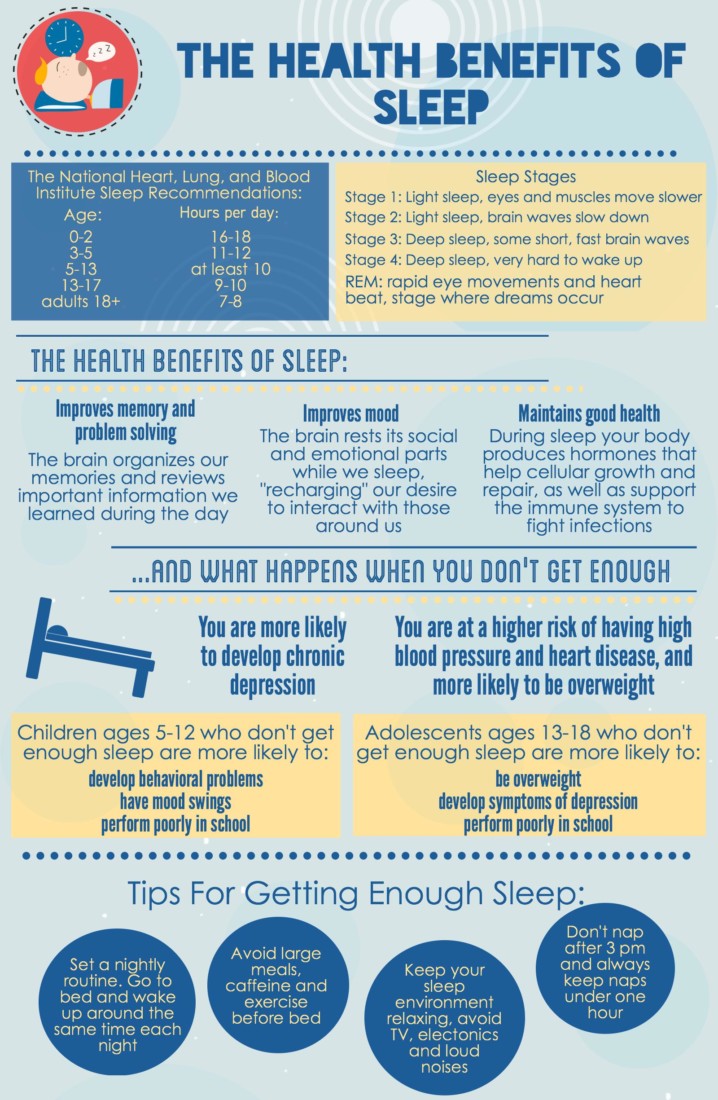Share On Social!
Everyone needs proper sleep, especially Latinos.
Lack of sleep contributes to heart attacks, diabetes, obesity and other serious health issues that disproportionately affect Latinos, CDC reports.
 For World Sleep Day on March 16, 2018, let’s explore why sleep is important for your health, how much Latinos sleep (or don’t sleep), and how you can improve your sleeping habits.
For World Sleep Day on March 16, 2018, let’s explore why sleep is important for your health, how much Latinos sleep (or don’t sleep), and how you can improve your sleeping habits.
World Sleep Day is directed by World Sleep Society, World Association of Sleep Medicine, and World Sleep Federation.
How Much Sleep Do We Need?
The National Institutes of Health (NIH) suggests that children need at least 10 hours of sleep daily, teens need 9-10 hours, and adults need 7-8 hours.
Why Is Getting Enough Sleep Such a Big Deal?
People who get insufficient sleep are also more likely to suffer from chronic diseases such as hypertension, diabetes, depression, and obesity, as well as from cancer, increased mortality, and reduced quality of life and productivity, according to CDC.
Sleeplessness costs the U.S. economy up to $411 billion a year in lost productivity, according to the NIH.
What Are Latinos’ Sleeping Habits, Issues?
Only 60% of Latinos get recommended hours of sleep, compared to 67% of Whites.
Latinos also nod off while driving more than Whites, CDC reports.
And up to 14% of Latino men and 6% of Latina women could have obstructive sleep apnea, a potentially life-threatening disease involving episodes of complete or partial airway obstruction during sleep, Huffington Post reports.
Find out your own risk for sleep apnea with the Hispanic Community Health Study’s calculator in English or Spanish.
Latino kids face sleep issues, too.
Sugary drinks and artificial sweeteners are bad for sleep. Also, kids who spend the most amount of time watching TV have shorter bouts of sleep, which negatively impacts physical and mental health, especially among minority kids, according to a 2014 study.
“At all time points, racial and ethnic minority children in our study were sleeping a bit less and watching more television,” according to Elizabeth Cespedes, the study’s lead author, according to a Fox News report.
(inforgraphic via iTriage Blog)
How Can We Change Our Sleep Habits?
Community leaders are stepping up.
One bilingual program is using promotoras to push healthy-sleep messages on the U.S.-Mexico border. San Antonio leaders are educating Latino parents, providing resources, and raising money for research to reduce SIDS and keep infants safe. New Mexico schools are giving students a high-tech nap.
Also, Kaiser Permanente developed helpful English and Spanish videos of tips people can use to get better sleep and improve their overall health:
- Go to bed and wake up around the same time each day.
- Do something relaxing until you feel tired. Read a book, listen to music or take a warm bath.
- Make sure your bed, bedding and nightclothes are comfortable.
- Skip bedtime snacks
- Put your phone down and turn the TV off. In fact, a UCSF study recently found that, as smartphone use increases, so does lack of sleep.
Getting daily physical activity also is a big part of proper sleep.
Go here to learn how to improve safe places for kids to get much-needed physical activity!
By The Numbers
25.1
percent
of Latinos remain without health insurance coverage



